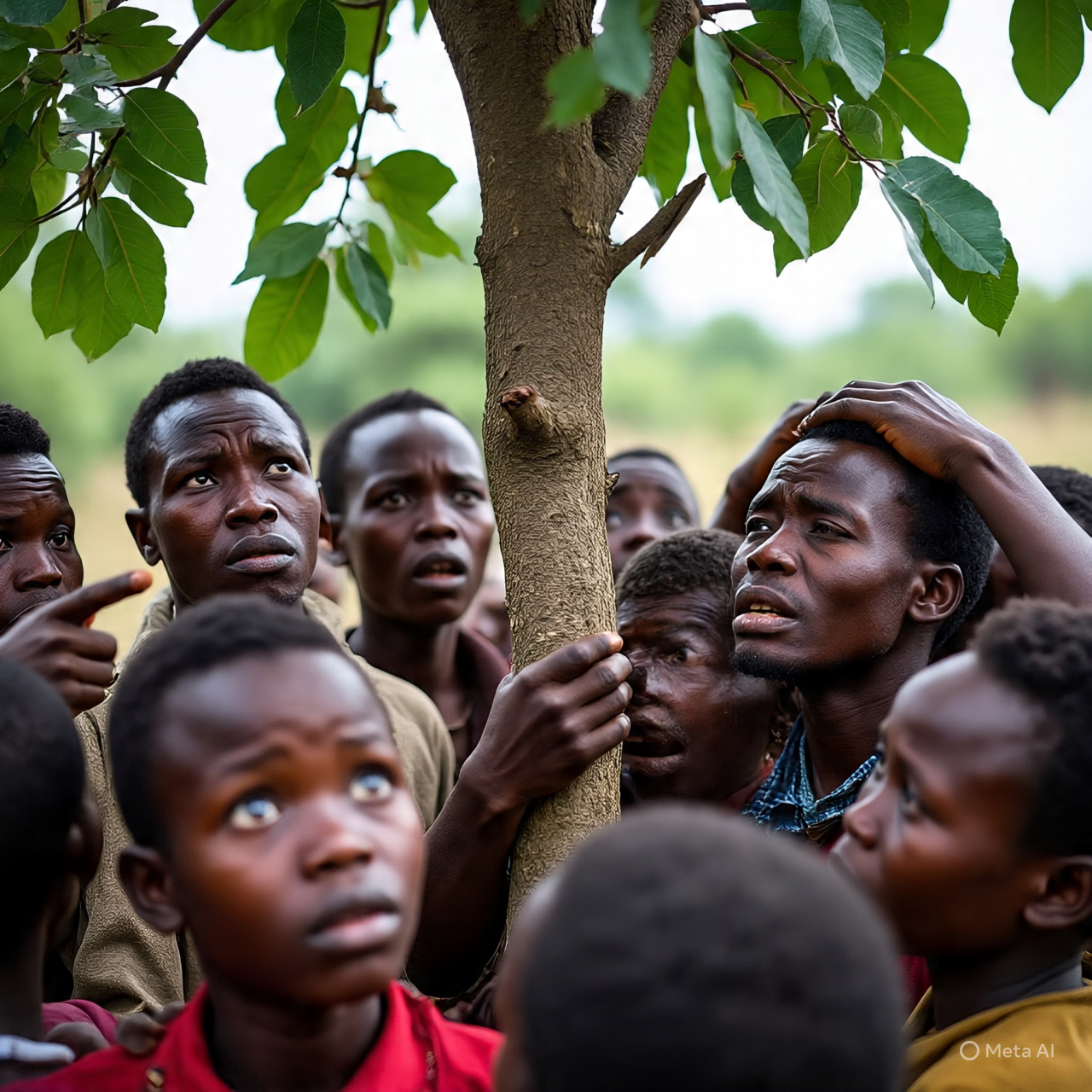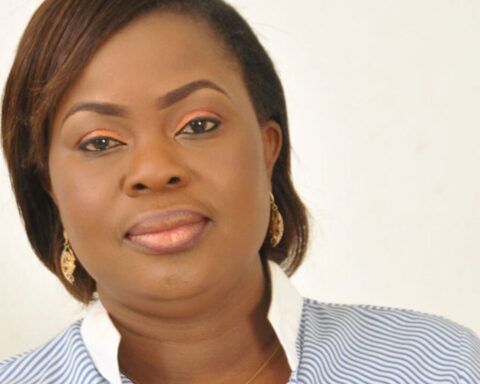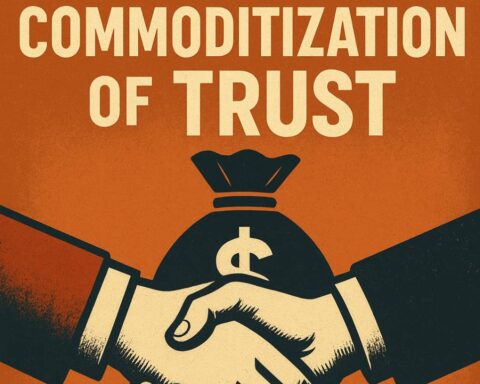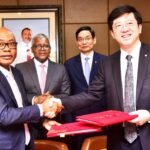A Letter to a Continent That Forgot How to Imagine
By Dr. Charles Obiajulu Ugwu
Each time I listen to the erudite Professor P.L.O. Lumumba lament Africa’s condition with that haunting refrain, “Are we cursed?” I feel an ache too old for metaphors. His question hangs not as rhetoric but as indictment, echoing through our plazas and parliaments, bouncing off the marble of our cathedrals and the dust of our forgotten villages. I find myself returning to my shelf, to the books and bones of our story, wondering how a continent that birthed the geometry of civilization now gropes in the dark for validation. Something in me refuses to accept the easy explanations about; the colonial scapegoats, the slave trade, the IMF, the so-called global conspiracy. For over four decades, I have continued to disagree with the likes of Walter Rodney who in his book “How Europe underdeveloped Africa”, tried to convince me that our developmental misfortunes were all exogenously framed. Those are convenient shadows, not the monster itself. The real enemy, I have come to believe, is subtler, internal, and more corrosive: we lost the fundamentals of our own mind. We became fluent in other people’s logics, trained to think in borrowed metaphors, and now we live in the ruins of our imitation.
Our tragedy is not that the world conquered us, but that we accepted conquest as the blueprint of our becoming. We learned to speak before learning to think. We memorized governance models meant for other climates, imported economic formulas that never smelled African soil, and called the mimicry “modernization.” Our schools became chapels of borrowed reason; our parliaments, echo chambers of foreign grammar. And yet, every year, a new generation of Africans leaves for foreign universities and returns crowned with degrees but stripped of context, brilliant minds trapped in architectures that were never designed for our complexity. The consequence is painful: we have an abundance of intelligence and a famine of imagination.
Whenever I travel across the continent from the restless streets of Lagos to the melancholy corridors of Kinshasa, from the promise of Nairobi to the fatigue of Johannesburg, I sense the same invisible illness: a people living beneath their own potential, dignified yet disoriented. We are a continent of geniuses misaligned with their environment. Africans abroad thrive because the systems they inhabit reward coherence; Africans at home drown because our systems reward loyalty to decay. It is not a curse. It is structural incoherence sustained by psychological surrender.
Look closely and you’ll see that our institutions were never truly born; they were inherited carcasses of colonial administration, painted black but breathing no new philosophy. We did not re-imagine governance after independence; we merely repainted the governor’s house and called it State House. We did not design our states to solve African problems; we designed them to maintain European order. Every African constitution bears the watermark of foreign anxieties. And so, our politics became a theatre of survival, not a workshop of ideas. Leaders campaign with borrowed slogans, govern with imported metrics, and celebrate with borrowed trophies. The people, watching this charade, have learned the cruel logic of resignation. In that resignation lies our true captivity.
But captivity, like freedom, begins in the mind. What the colonizer perfected was not the sword it was the syllabus. He replaced our cosmologies with curriculums, our myths with manuals, our philosophy with propaganda. We were taught to revere precision more than wisdom, memorization more than interpretation. The result is a generation fluent in the mechanics of Western knowledge but illiterate in the poetry of its own existence. I meet young Africans who can code in seven programming languages but cannot name one pre-colonial philosopher from their lineage. We have built skyscrapers without meaning, economies without morality, democracies without citizens. No curse could be more efficient than this, an intellect divorced from its soul.
Somewhere along the line, our sense of time collapsed. We began to live in fragments: one part of us nostalgic for a golden past we barely understand, another addicted to the illusions of Western futurism. We exist in multiple centuries at once. Our cities mimic the chaos of modernity, our villages echo the silence of abandonment, and our imagination floats in the limbo between the two. We call every new initiative a “vision” from Vision 2010, Vision 2020, Vision 2063 each one promising rebirth, each one vanishing into the bureaucracy of our forgetfulness. We do not build from yesterday toward tomorrow; we keep beginning again, as if the past were shame and memory an inconvenience. A people who cannot remember cannot regenerate.
When I speak of regeneration, I do not mean nostalgia for lost traditions. I mean the restoration of a living feedback system a culture that can self-correct, reinvent, and adapt without losing coherence. Our ancestors had that. The village council was not just politics; it was moral geometry. Age grades, market days, kinship alliances and they were feedback mechanisms that balanced power, knowledge, and spirituality. We dismantled them and replaced them with ministries. Ministries do not regenerate; they administer. Administration is a function of paperwork, not of consciousness. So, while the paperwork of government multiplies, the consciousness of governance disappears.
This is why we confuse activity for progress. We pave roads that lead nowhere, build monuments to leaders who built nothing, and host conferences to discuss the failures of previous conferences. Every crisis becomes a business opportunity for consultants; every solution dies in a committee. The African state has mastered the art of perpetual rehearsal. We are always preparing to become something but never daring to be it. It is not laziness rather it is misalignment. We operate with tools designed for exploitation, not creation. You cannot use the master’s clock to tell your own time.
The elite, of course, know this. They have perfected the art of surviving the collapse they supervise. They send their children abroad, store their health in foreign hospitals, their savings in foreign banks, and their dignity in foreign passports. They govern a continent they no longer inhabit. Their loyalty is not to Africa but to privilege. In such a landscape, corruption is not merely theft it is the unconscious philosophy of a class that believes in extraction as destiny. They do not steal because they are evil; they steal because they see no other logic of thriving within a decayed system. The ordinary citizen, watching this, learns cynicism as a survival skill. Hope becomes a rumor. That is how civilizations rot from the elite downward.
And yet, despite all this, I do not despair. Despair is another form of surrender. I have seen too many sparks to doubt the fire. Across this continent, beneath the noise of politics and poverty, something stirs a quiet insurgency of thinkers, makers, dreamers who no longer seek permission to imagine. They are building startups that speak the language of soil and sunlight, artists who paint futures without apology, scholars who question the epistemic monopoly of the West. These are Africa’s prophets of possibility. They may not have flags or budgets, but they possess what every renaissance requires: audacity.
Audacity is not rebellion for its own sake; it is the courage to redesign meaning. For Africa to awaken, it must reclaim the right to define progress in its own metaphors. What does wealth mean in a society where community, not consumption, was once the measure of abundance? What does governance mean in cultures that understood leadership as stewardship, not spectacle? What does education mean in a world where knowing without belonging is failure? Until we confront these questions, development will remain a performance, not a transformation.
I sometimes think our most urgent task is not economic growth but epistemic sovereignty. We must relearn how to think as a people situated in our own history, not as echoes of other civilizations. The Chinese rose when they stopped translating themselves through Western eyes. The Indians, for all their contradictions, drew from the depth of their civilizational grammar. Africa must do the same not by romanticizing its past, but by excavating from it the principles of coherence that made its societies resilient long before Europe discovered the compass. A civilization dies when it forgets how to interpret itself.
To interpret ourselves anew, we must first heal our psyche. We must unlearn the reflex of self-doubt that centuries of humiliation imprinted in our bones. We must forgive ourselves for our survival, because survival under domination breeds habits of smallness, compromise, caution, conformity. These habits outlived the empire and became culture. We bow too easily. We laugh to avoid confrontation. We celebrate mediocrity because excellence offends our comfort. But healing begins when we look our wounds in the eye and name them without flinching. Africa’s liberation will not come from anger but from self-knowledge.
Sometimes I imagine what it would look like if African universities declared intellectual independence for one decade: no imported curricula, no Western accreditation, just a continental experiment in thinking from first principles. What kind of economics would emerge if our metrics were well-being, not GDP? What kind of democracy would we design if consensus, not competition, defined legitimacy? What kind of technology would we build if innovation were measured by harmony with nature, not disruption of it? Such questions terrify the bureaucrat but excite the builder. We must choose which we wish to be.
I do not deny the weight of history. Colonization was real, slavery catastrophic, exploitation ongoing. But maturity demands that we stop confusing acknowledgment with dependence. The West owes Africa, yes but Africa owes itself more. To forever blame the past is to surrender authorship of the future. No one will write our redemption for us. The ink is already in our veins.
I often recall a scene from my travels: a group of young African engineers in Kigali, designing drones for agricultural mapping. Their lab was modest, their funding uncertain, but their eyes were steady. When I asked what drove them, one smiled and said, “We are tired of waiting for permission to be excellent.” That sentence haunts me. It is the distilled spirit of a continent ready to outgrow its excuses. If we can multiply that spirit a thousandfold in our classrooms, boardrooms, and parliaments then the so-called curse will dissolve like mist under morning light.
The curse, after all, was never metaphysical. It was the slow corrosion of belief, the domestication of our imagination, the comfort of victimhood. We are not cursed. We are unwritten. Our story was interrupted, and we have mistaken the interruption for conclusion. History waits for us to resume the sentence.
So when Lumumba asks, “Are we cursed?” my answer is both tender and defiant: No, Professor, we are not cursed. We are sleeping giants trapped in borrowed beds. The day we wake up to the enormity of our possibility, the world’s axis will shift. But awakening requires more than slogans and summits; it demands a renaissance of consciousness. A people must first believe in the sanctity of their own mind before they can build nations worthy of their soul.
Perhaps that is where our work truly begins not in policy papers or political campaigns, but in the quiet revolution of perception. To see ourselves again, unfiltered, unborrowed, unashamed. To recognize that every broken system is a mirror reflecting a broken story about who we think we are. To rewrite that story, we must reclaim the grammar of our dignity, the syntax of our courage, the punctuation of our hope. It will not happen overnight. Civilizations do not regenerate by decree; they evolve through awakening. But the awakening has already begun.
I write these words not as lamentation but as invocation. Africa’s crisis is deep, yes but depth is also where gold is found. Beneath our ruins lie the raw materials of a new consciousness: resilience, spirituality, communal intelligence, and a stubborn joy that refuses extinction. If we can fuse those into a coherent system of meaning, we will not only rise we will redefine what rising means.
I have stopped asking if we are cursed. I now ask if we are ready. Ready to think without permission, to govern with conscience, to learn without mimicry, to live without apology. Readiness is the first freedom. Once we claim it, the rest will follow. And when that day comes, when African children grow up not as imitators of others but as authors of reality, then history will record not our suffering, but our resurrection.
Until then, I remain restless but hopeful. The continent’s pulse, though faint, still beats beneath the noise. I can hear it in the laughter of market women who outwit inflation daily, in the poetry of our musicians who turn grief into rhythm, in the defiance of our youth who still believe in impossible futures. That pulse is Africa’s unfinished symphony. It is not a curse. It is a call.
Dr. Charles Obiajulu Ugwu
Management consultant, adaptability thought leader, and regenerative systems expert. He writes and speaks on cognitive leadership, civilizational renewal, and human transformation.
Follow us on all social media platforms @dailyquery for news and analyses around the globe.



























